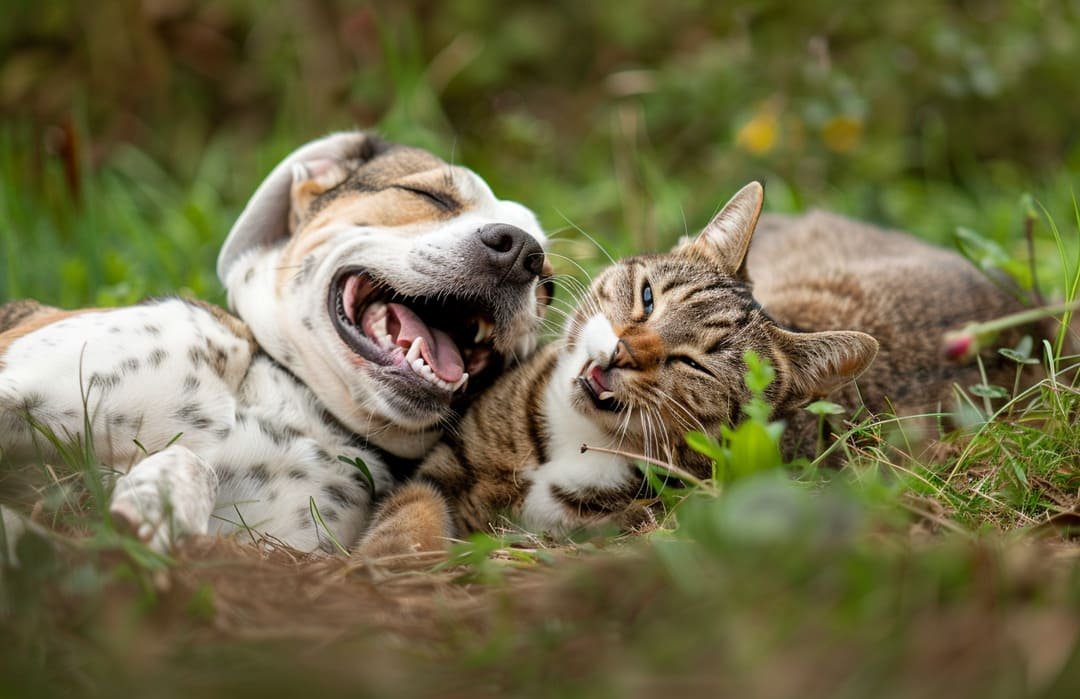Bloody poop in cats may be a concerning sight for pet owners, prompting questions about their feline friend's health and well-being. Imagine finding red streaks in your cat's litter box—what could be causing this worrisome symptom? Understanding the causes, symptoms, and treatment of bloody poop in cats is essential for ensuring your companion's digestive health. Let's delve into this topic to shed light on how you can best support your cat through any gastrointestinal challenges they may face.
Understanding Bloody Poop in Cats
Common Causes of Bloody Poop in CatsBloody poop in cats, also known as hematochezia, can be alarming for pet owners. It is essential to understand the various causes that can lead to this symptom in felines:
-
Parasites, such as worms or protozoa, affecting the digestive system
-
Inflammatory bowel disease (IBD) causing irritation and bleeding in the gastrointestinal tract
-
Dietary intolerances or allergies triggering digestive issues
-
Presence of polyps or tumors in the colon or rectum
Visible Symptoms of Bloody PoopWhen dealing with bloody poop in cats, it's crucial to pay attention to accompanying symptoms that may indicate an underlying issue, such as:
-
Diarrhea or constipation along with blood in the stool
-
Straining or discomfort during bowel movements
-
Changes in appetite or water intake
-
Lethargy or unusual behavior
Diagnosis and Treatment ApproachesTo effectively address bloody poop in cats, a veterinarian may recommend the following diagnostic and treatment steps:
-
Fecal exams to identify any parasites or infections
-
Blood tests to assess overall health and detect possible underlying conditions
-
Imaging studies like X-rays or ultrasounds to evaluate the digestive tract
-
Treatment options tailored to the specific cause, which may include medications, dietary modifications, or surgery if needed
Importance of Veterinary ConsultationSeeking prompt veterinary evaluation and guidance is vital when dealing with bloody poop in cats. A professional assessment can help determine the precise cause and provide appropriate treatment to ensure your pet's health and well-being. Remember, early intervention is key to managing and resolving digestive issues in cats.
For more information on gastrointestinal health in cats, you can refer to Hill's Pet Nutrition.
Symptoms and Treatment of Bloody Poop in Cats
Symptoms to Watch Out ForIdentifying the symptoms associated with bloody poop in cats is crucial for timely intervention and treatment:
-
Fresh blood in the stool or around the litter box
-
Diarrhea or loose stools with visible blood
-
Straining or discomfort during bowel movements
-
Increased frequency of defecation or urgency to use the litter box
Behavioral Changes and Signs of DiscomfortAside from physical symptoms, cats with bloody stool may exhibit changes in behavior indicative of underlying issues:
-
Lethargy or lack of energy
-
Loss of appetite or decreased interest in food
-
Excessive grooming of the rear end or signs of discomfort while grooming
-
Vocalization or meowing during defecation
Diagnostic Procedures and ManagementWhen faced with a cat experiencing bloody poop, it's essential to follow these steps for proper diagnosis and management:
-
Schedule a veterinary appointment for a thorough physical examination
-
Provide a stool sample for fecal analysis to check for parasites or infections
-
Consider blood work to assess overall health and rule out systemic conditions
-
Implement dietary changes or medications as prescribed by the veterinarian
Seeking Professional HelpIf you notice bloody poop in your cat or any concerning symptoms, do not hesitate to consult a veterinarian promptly. Early detection and intervention can significantly impact the outcome and help your feline companion recover more effectively.
To learn more about gastrointestinal issues in cats, visit Royal Canin's resource on feline digestive health.
Underlying Health Conditions Related to Bloody Poop in Cats
Gastrointestinal Issues in CatsWhen discussing bloody poop in cats, various underlying health conditions related to the digestive system can contribute to this symptom:
-
Inflammatory bowel disease (IBD): A chronic condition causing inflammation of the digestive tract, leading to bloody stool.
-
Colitis: Inflammation of the colon can result in blood appearing in your cat's stool.
-
Pancreatitis: Inflammation of the pancreas can affect digestion and nutrient absorption, resulting in gastrointestinal issues.
-
Intestinal parasites: Worms or other parasites can cause irritation and bleeding in the intestines, leading to bloody poop.
Infections and Inflammatory DisordersApart from gastrointestinal issues, infections and inflammatory disorders can also play a role in causing bloody stool in cats:
-
Bacterial infections: Certain bacterial infections, such as Campylobacter or Salmonella, can lead to digestive disturbances and bloody poop.
-
Feline leukemia virus (FeLV): Cats infected with FeLV may experience gastrointestinal symptoms, including bloody diarrhea.
-
Viral infections: Viruses like feline panleukopenia can affect the intestinal lining and contribute to bloody stool.
Diagnostic Evaluation and Treatment ApproachesTo address bloody poop in cats resulting from underlying health conditions, veterinary involvement is crucial:
-
Diagnostic tests: Your veterinarian may recommend blood work, fecal exams, imaging studies, or endoscopy to identify the specific cause.
-
Treatment options: Depending on the diagnosis, treatment may involve medications, dietary modifications, or surgery to manage the condition effectively.
Ensuring Proper CareUnderstanding the potential underlying health conditions contributing to bloody poop in cats underscores the importance of seeking professional veterinary care. By promptly addressing these issues, you can help improve your cat's quality of life and overall well-being.
For additional resources on feline health and wellness, visit Purina's website for valuable insights and information on caring for your pet.
Home Care Tips for Cats with Bloody Poop
Managing Dietary NeedsTailoring your cat's diet can play a significant role in managing bloody poop and promoting gastrointestinal health:
-
Consider switching to a high-quality, easily digestible cat food rich in fiber to aid in digestion.
-
Gradually introduce new foods and monitor your cat's response to identify any dietary triggers.
-
Provide fresh water at all times to ensure proper hydration, essential for digestive function.
Supporting Gut HealthOptimizing your cat's gut health can help alleviate digestive issues and reduce the likelihood of bloody stool:
-
Incorporate probiotics or digestive supplements recommended by your veterinarian to support a healthy gut flora balance.
-
Offer occasional treats designed to support digestive health, such as hairball control treats or natural fiber supplements.
-
Minimize stressors in your cat's environment, as stress can impact gut function and contribute to digestive disturbances.
Maintaining a Regular RoutineEstablishing a consistent daily routine for your cat can contribute to better digestive health and overall well-being:
-
Stick to a regular feeding schedule to promote healthy digestion and bowel movements.
-
Provide opportunities for exercise and mental stimulation to reduce stress and support gastrointestinal function.
-
Monitor litter box habits and stool quality to track any changes and promptly address concerns.
Consulting with Your VeterinarianWhile home care measures can be beneficial, consulting with your veterinarian is crucial for proper management of bloody poop in cats:
-
Schedule regular check-ups to monitor your cat's gastrointestinal health and discuss any concerns or changes in symptoms.
-
Follow your veterinarian's guidance regarding treatment plans, dietary recommendations, and ongoing care for your cat.
-
Be proactive in seeking professional help if you observe persistent or worsening symptoms of bloody poop in your cat.
For additional insights on cat care and nutrition, visit Iams' official website for expert advice and resources to help you support your cat's well-being.
Preventive Measures for Bloody Poop in Cats
Promoting Digestive HealthEnsuring proper digestive function is key to preventing issues like bloody poop in cats. Consider the following strategies to support your cat's digestive system:
-
Provide a balanced diet formulated for optimal feline nutrition, including essential vitamins and minerals.
-
Incorporate digestible fiber sources, like pumpkin or psyllium, to promote healthy bowel movements and prevent constipation.
-
Offer occasional treats designed to support digestive health, such as probiotic treats or natural fiber supplements.
Regular Veterinary Check-UpsRoutine veterinary visits are essential for monitoring your cat's overall health and catching potential issues early:
-
Schedule annual wellness exams to assess your cat's digestive health and address any concerns.
-
Discuss preventive care measures with your veterinarian, including vaccinations, parasite prevention, and dental health.
-
Be proactive in reporting any changes in your cat's behavior or litter box habits to your vet for timely intervention.
Hydration and Water IntakeAdequate hydration is crucial for maintaining proper digestion and preventing constipation, which can contribute to bloody stool:
-
Ensure your cat has access to fresh, clean water at all times to promote hydration.
-
Consider incorporating wet food into your cat's diet, as it provides additional moisture to support digestive function.
-
Monitor your cat's water intake and encourage drinking, especially in multi-cat households where competition for resources may exist.
Stress ManagementReducing stress in your cat's environment can have a positive impact on their overall well-being and digestive health:
-
Provide a safe, quiet space for your cat to retreat to when feeling overwhelmed or stressed.
-
Offer enrichment opportunities, such as interactive toys or climbing structures, to engage your cat mentally and relieve stress.
-
Consider pheromone products or calming supplements to help reduce anxiety in cats prone to stress-related digestive issues.
For expert guidance on preventive care and feline wellness, visit Hill's Pet Nutrition's resource on cat health for comprehensive information and advice on supporting your cat's health and happiness.
Conclusion: Ensuring Your Cat's Digestive Health
Consistent Care and VigilanceIn conclusion, maintaining your cat's digestive health is essential for reducing the risk of bloody poop and other gastrointestinal issues. By staying proactive and implementing preventive measures, you can help your feline companion lead a healthy and comfortable life.
Key Takeaways
-
Monitor your cat's bowel movements and litter box habits regularly to detect any signs of bloody poop promptly.
-
Consult with your veterinarian if you observe persistent symptoms of gastrointestinal distress, including bloody stool.
-
Implement preventive strategies such as a balanced diet, hydration, stress management, and regular veterinary check-ups to support your cat's digestive well-being.
Your Cat's Health MattersRemember, your cat's health and happiness are paramount. By prioritizing their digestive health and seeking professional guidance when needed, you can ensure that your beloved feline friend enjoys a high quality of life free from the discomfort of bloody poop and other digestive issues.
For more information on cat care, nutrition, and health, visit Royal Canin's official website for expert insights and resources to support your cat's overall well-being. Thank you for taking the necessary steps to care for your feline companion and promote their digestive health.
Can stress cause bloody poop in cats?
Stress can indeed contribute to digestive issues in cats, potentially leading to symptoms like bloody poop. Cats are sensitive to changes in their environment or routine, and stress can manifest in various ways, including gastrointestinal disturbances. It's essential to address stressors and provide a calm, comfortable space for your cat to help maintain their digestive health.
When should I seek veterinary attention for my cat's bloody poop?
If you notice persistent or recurring instances of bloody poop in your cat, it's crucial to consult with a veterinarian promptly. Veterinary intervention is necessary to identify the underlying cause and develop an appropriate treatment plan for your cat's specific condition. Early detection and intervention can significantly impact the effectiveness of treatment and your cat's overall well-being.
Are there specific foods that can help manage bloody poop in cats?
Certain dietary adjustments may aid in managing digestive issues resulting in bloody stool. High-quality, easily digestible cat food, rich in fiber and balanced nutrients, can support gastrointestinal health. Additionally, incorporating probiotics or natural fiber sources into your cat's diet may help regulate bowel movements and promote digestive well-being.
Can parasites be a common cause of bloody poop in cats?
Parasites, such as worms or protozoa, can indeed cause bloody stool in cats by irritating the gastrointestinal tract and leading to inflammation and bleeding. Regular deworming treatments as recommended by your veterinarian can help prevent parasite infestations and reduce the risk of bloody poop associated with these internal parasites.
What role does hydration play in preventing bloody poop in cats?
Adequate hydration is vital for maintaining healthy digestion in cats. Ensuring your cat has access to fresh, clean water at all times can help prevent constipation and promote regular bowel movements. Incorporating moist foods or adding water to dry kibble can also increase your cat's overall water intake, supporting proper digestion and potentially reducing the risk of bloody poop.


